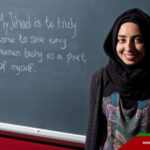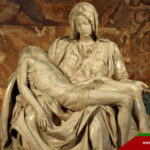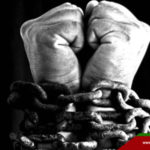by Syed Rizwan Rizvi
O mankind! Be wary of your Lord who created you from a single soul, and created its mate from it, and from the two of them, scattered numerous men and women. (Al-Qur’ān 4:1)
Islam has observed the actual equality of mankind in regard to man and woman.
Islam is not adverse to the equality of rights between man and woman, but has reservations in the similarity between the two.
Islam denounces the slandering and disrespectful views about women.
Qur’ān keeps a balance in mentioning the stories from history, heroes of past are not limited to men only.
Scholars of Islām base their reasoning behind rights on justice, not necessarily on equality.
Qur’ān is not a collection of laws and outdated provisions without interpretation, rather, it is a book which discusses history, advices mankind, mentions the reason for their creation amongst many other things.
While Qur’ān describes laws and specifies doctrines in places, similarly it talks about the secrets of the creation of earth and skies, plants, animals and humans. It also mentions the secrets behind death and life, honor for some and dishonor for some, progress and downfall, wealth and poverty, etc.
Qur’ān is not a book of philosophy, but it explains its views with authority about the world, humans and society—all three of which are fundamental issues in philosophy. Islam doesn’t only teach the laws to its followers, rather, by explaining the creation gives them a method of thinking and a specific world view.
Among the topics mentioned in Qur’ān is the discussion of the creation of man and woman. It didn’t allow people to say nonsense about these issues and makeup stuff on their own.
Is the creation of men and women different? Do they have separate natures or similar? It says with clarity in Qur’ān on many occasions that ‘we have created man and women from the same source’. Moreover, it says about all of mankind that “And of His signs is that He created for you mates from your own selves”. (Al-Qur’ān 30:21)
There is no mention in Qur’ān about the deviated thoughts such as: ‘women are inferior to men, they are element of sin, their existence is evil’, ‘they were created because of men, and first woman was created from the ribs [of Adam].’ (Bukhari vol.4, pg.133, Hadith 3331)
Similarly, in some of the literature we find that the first man who was deceived by Satan is ‘Adam’; and it was because of a woman. When we look at this story in Qur’ān it never lays any blame on Eve, wife of Adam. All those verses have dual pronouns used for a reason. “Then Satan tempted [both of] them”, “so he made them fall by deception”, ‘And he swore to both of them, I am indeed your well-wisher’. (Al-Qur’ān 7:20-22)
This is how Qur’ān has tried to end this common view which blames women unnecessarily.
Other such degrading views regarding women are from their spiritual capabilities. They say, women cannot achieve high spiritual status, she cannot attain nearness to Allah the way men can. Qur’ān again with authority negated such views that attaining closeness to God is not limited to a gender, rather, it is through faith and action, whether it’s from man or woman. “And whoever does righteous deeds, whether male or female, should he be faithful—such shall enter paradise”. (Al-Qur’ān 4:124)
Qur’ān alongside with holy and sacred men has mentioned holy and sacred women. Wives of Adam and Ibrāhīm, mother of Mūsa and Isa (as) have been all mentioned with utmost respect and honor. Wives of Lūt and Nūh have also been denounced, contrarily, wife of Fir‘awn is mentioned for her chastity.
Qur’ān has kept a balance when mentioning the heroes in the history and didn’t limit It to men only.
Qur’ān, about mother of Mūsá (as) says: ‘We revealed to Moses’ mother, [saying], ‘Nurse him; then, when you fear for him, cast him into the river, and do not fear or grieve, for We will restore him to you and make him one of the apostles’. (Al-Qur’ān 28:7)
Qur’ān, about Maryam (s); mother of Prophet Isā (as) says, that she reached the level where she used to communicate with the angels on regular basis and used to receive sustenance from the unseen. She reached such high status that Prophet Zakariyyah was staggered by it. (Al-Qur’ān 3:37)
Difference between Equality and Similarity
Equality is separate from similarity. Equality is treating everyone equally from the aspect of them being humans and not necessarily similar.
The word ‘equality’ has developed a sacred connotation, especially when mentioned alongside ‘rights’. ‘Equal rights’, ‘human rights’ and even animal rights are very beautiful combinations and sacred as well. Who wouldn’t bow in front of this concept with a right conscience? What is certain here is that Islam has not legislated similar [in comparison] laws for man and woman. The same way it hasn’t legislated similar duties and punishments for them. For example, there is no capital punishment for an apostate woman, while there is for men. Jihād is not obligatory on women, but it is on men. It Is man’s duty to provide for the maintenance of his wife and not vice versa.
A clearer example of this phenomenon can be witnessed in a hospital with patients in it; the doctor treats all of them equally but not similarly. If he was to treat them similarly, it will be devastating.
What is mentioned from the perspective of Islām is that men and women are not similar to one another in many aspects. And this demands that in many areas of rights, obligations, and punishments they are treated differently.
In Europe before Twentieth century there were no laws and rights for women, not equal nor similar. In order to cover up for their previous mistakes they are hastily making up equal rights for both genders. We are claiming equal rights but not similar rights for men and women.








